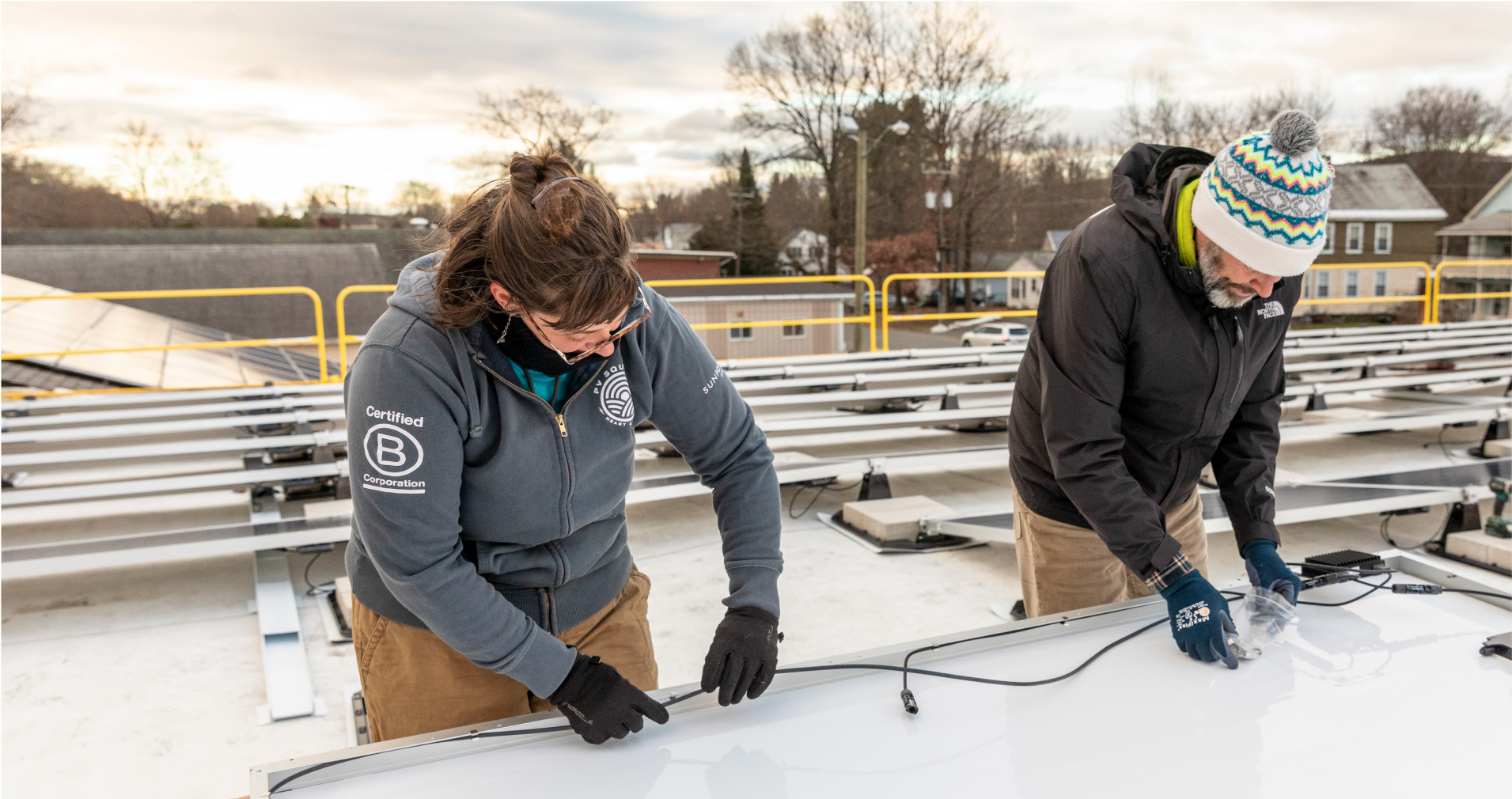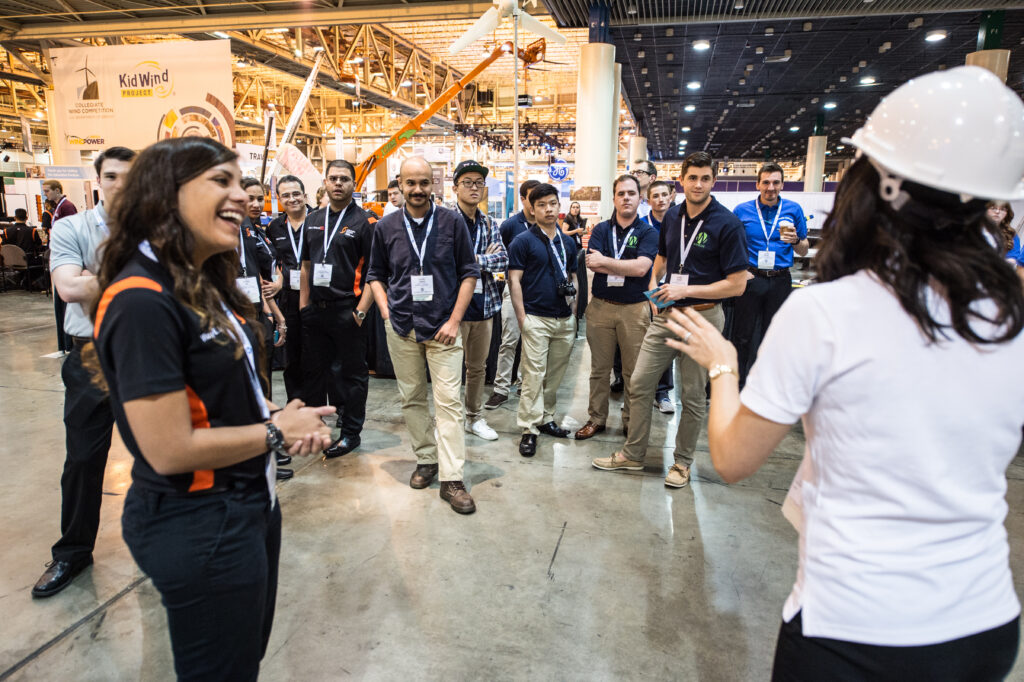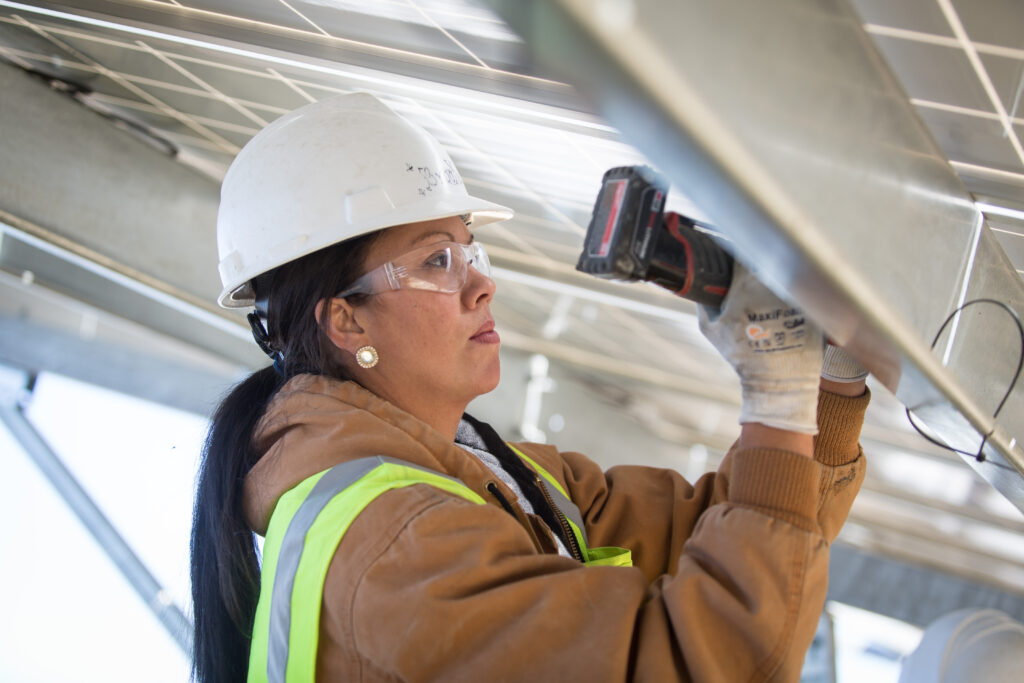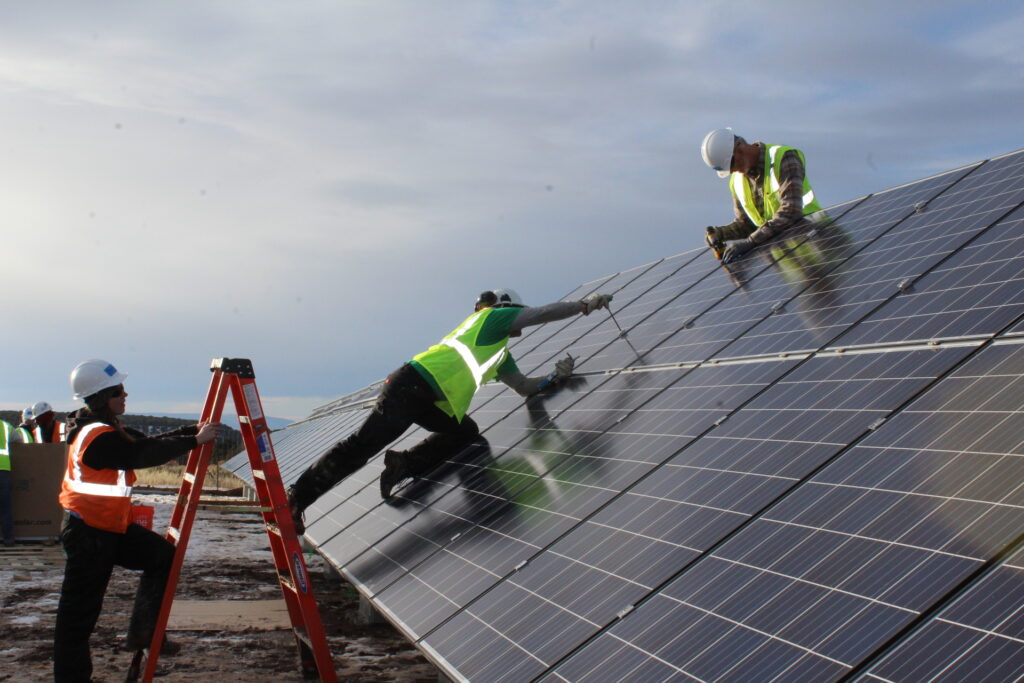
PV Squared
Climate | Initiative
Assessing the Clean Energy Workforce
Expanding equitable access to clean energy jobs in New England
Meeting our clean energy transition goals will require a skilled, strategic, and well-resourced workforce development ecosystem. To support this goal, the Foundation commissioned and published a research study on workforce trends in the region alongside Emerald Cities Collaborative—with partners Browning the Green Space, nomada Consulting, Ponder Analytics, and BW Research in 2023.
Since releasing the study we have:
- Funded organizations advocating to remove barriers to accessing jobs in state energy efficiency and clean energy programs
- Supported the nation’s Climate Careers Fund, a state-wide program in Massachusetts that offers training opportunities for entry-level and fossil fuel workers to gain green career skills that advance to in-demand roles with higher wages
- Encouraged partnerships between clean energy and workforce development organizations to improve small business awareness and participation in clean energy
Key Research Findings
Barr’s Climate Program commissioned a multi-disciplinary workforce ecosystem analysis combining surveys, executive interviews, focus groups and data and policy analyses.
We asked:
- What is the current workforce ecosystem in New England?
- How can we support job entry or retraining/upskilling pathways into clean energy for groups that are underrepresented in the clean energy industry?
- What entry points and pathways exist for minority and women-owned business enterprises (MWBEs) entering the space?
- How can philanthropy support public funding and incentives to advance clean energy workforce development?
We learned:
- The clean energy industry in New England is stable but will need to grow to meet climate goals and anticipated demand for energy technologies.
- The clean energy sector is behind other sectors of the economy in gender and racial inclusion.
- Sector growth must intentionally balance job quality and job access
- Regionally, the workforce development and clean energy sectors remain siloed in many state and local governments. Further collaboration is needed to improve connectivity across the workforce ecosystem.
- In New England and throughout the country, there has been limited philanthropic support for clean energy workforce development. Deeper philanthropic engagement could foster collaboration and support equity-centered approaches to industry growth.
Access to Clean Energy Jobs: Expanding Opportunities

Supplemental Datasets
Geographic Profiles of the Clean Energy Workforce Ecosystem
-
Hartford-East, Hartford-Middletown, Connecticut
Hartford has an emerging infrastructure of educational institutions, organized labor, regional and state agencies, advocacy, and firms in active partnerships focused on creating pathways in the climate sector.Read the Profile -
New Haven-Milford, Connecticut
New Haven has several workforce training assets to support pathways into clean energy careers. There are four Job Corps pre-apprenticeship programs throughout the State of Connecticut that serve New Haven and Hartford.Read the Profile -
Portland, South-Portland, Maine
Maine’s prioritization of high-road jobs in solar and offshore wind along with a commitment to a diverse workforce, has led to $3M in funding to support diverse hiring, prevailing wages and the development of apprenticeship programs for the renewable energy sector.Read the Profile -
Boston-Cambridge-Newton, Massachusetts and New Hampshire
The City of Boston is positioning itself to become an important workforce hub for the region. Regional collaboration is strong partly fueled by quasi-governmental organizations like Massachusetts Clean Energy Center (MassCEC).Read the Profile -
Springfield, Massachusetts
Springfield’s infrastructure is emerging to meet clean energy demand, especially roles in energy efficiency. Programs like the energy systems program at Springfield Technical Community College offer a training model for short-term credentialing.Read the Profile -
Providence-Warwick, Rhode Island
This area has one of the strongest pre apprenticeships models in the region. Organizations like Building Futures RI focus on enrolling applicants from underrepresented communities and providing them with paid training opportunities.Read the Profile

